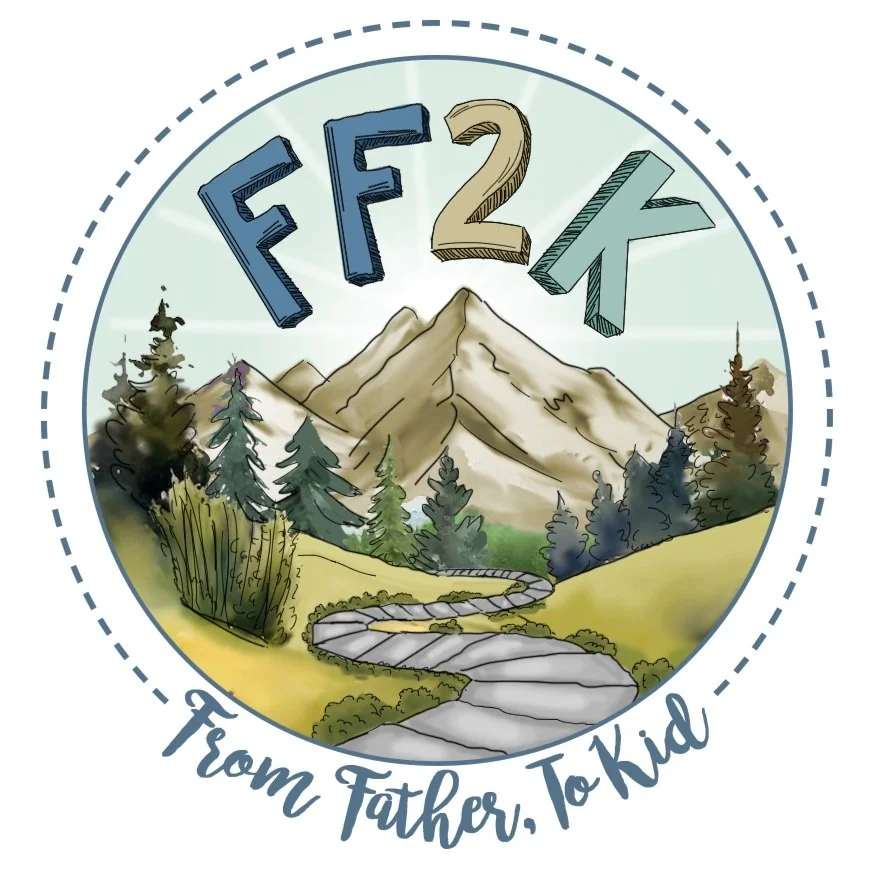Truth, Lies, and the Space Between
“The best stories are true. But not all truths need to become stories.”
UnknownLast week, you showed me a piece of art you'd made, Lyla. I told you it was incredible.
It was good. I was proud of you. I wanted you to feel all the warmth I felt looking at it. I wanted to encourage you to make more, to keep showing me your creations, to know that I see what you're building.
But was it incredible? Or was I embellishing because I wanted the moment to land the way I felt it?
I've been thinking about this a lot lately. About the lies I tell. The small ones, the ones that slip out before I even realize I'm doing it. The ones that make stories a little bigger, pain a little sharper, moments a little more dramatic.
I lie sometimes. Not always consciously. Not always maliciously. But I do it.
Sometimes it's obvious: one step past sarcasm, so blatant that I assume no one could possibly mistake my actual words for truth. Sometimes it's so subtle even I barely notice. And sometimes, it's wrapped in something true, something I genuinely feel, but I've turned up the volume to make sure it's heard.
I've been thinking about how emotional truth and factual truth aren't always the same thing. That you can feel something deeply real even if the details aren't perfectly accurate. But where's the line? When does heightening truth become creating falsehood?
I think I've figured out a framework. It's not perfect, but it's what I've learned: If embellishment triggers a NEW emotion (one that the truth wouldn't have created), then it's manipulation. But if it HEIGHTENS an emotion that the truth already contains? That might just be storytelling.
When I told you your art was incredible, I was heightening my genuine pride. I wasn't creating a false emotion. But I wonder: am I teaching you that "good" isn't enough? That truth needs to be amplified to matter?
Years ago, I learned something at work. Someone had created a situation where they personally benefited in a way that was ethically questionable. It came to light after they'd left the company, but the information could have damaged people who had nothing to do with it, people who were trying to build something better.
About two years later, someone asked if I knew about it. I said I didn't.
It was a stupid lie. Of course I knew. But I didn't want that information weaponized against people who didn't deserve it.
I don't regret protecting those people. But I don't think lying was the right call either. Both of those things live in my head at the same time.
Because here's the thing about truth: sometimes it does damage. Like if someone asks you to compete against them as hard as you can because they want to beat you fair and square, but you know if they lose after trying their absolute hardest, it will crush them. They'll be so demotivated and deflated that they give up before they can actually beat you fair and square. And you want to see them get there.
That's a dangerous truth. But it's still a lie to hold back.
Another time, I told someone about that ethically questionable situation. I told them the truth, the full truth. And they just said, "That's how the world works."
They dismissed it. My truth didn't register as important to them.
For a moment, I wondered: should I have made the number bigger? If I'd doubled the amount, tripled it, would they have cared about the morality then? Would exaggerating have been justified if it made them see what was wrong?
But that's exactly the trap. That would have been creating a new understanding, not heightening the truth. I would have been manipulating them into caring about something different than what actually happened. That's where I would have crossed the line. That's where embellishment becomes deception.
People will try to manipulate you with "emotional truths" that are built on lies, Lyla. They'll tell you stories that feel real, that make you feel what they want you to feel, but the foundation is false.
Your truth matters. Even if someone dismisses it. Your experience is real. Your feelings are valid.
But factual reality still matters too. If someone tells you something happened that didn't happen, that's not just a different truth. That's living in a false world. And we correct people living in false worlds.
So when you're tempted to embellish, to make a story bigger so someone will really get it, ask yourself: Am I heightening a truth that's already there? Or am I creating a new understanding that isn't real?
I still struggle with this. I catch myself saying things that aren't quite true, and I try to clarify afterward, to make sure people know my intentions were good even if my execution was messy.
When I told you your art was incredible, I meant it. Not because every technical element was perfect, but because watching you create something, watching you decide what mattered to you and bring it into the world, that IS incredible to me.
Maybe the trick isn't avoiding embellishment entirely. Maybe it's making sure that when we amplify something, we're amplifying what's genuinely there.
The line matters. Truth matters. Even when it's complicated. Even when it's not enough on its own.
Especially then.
